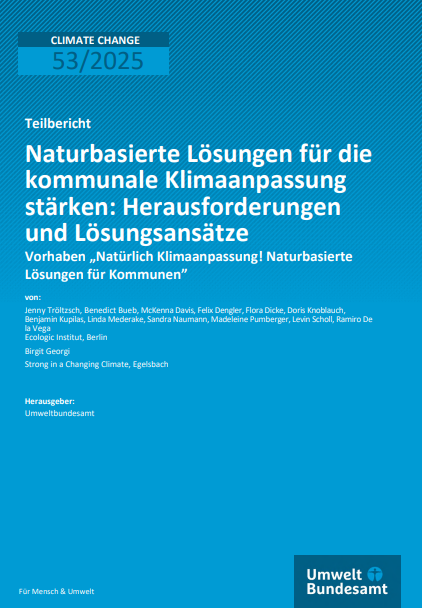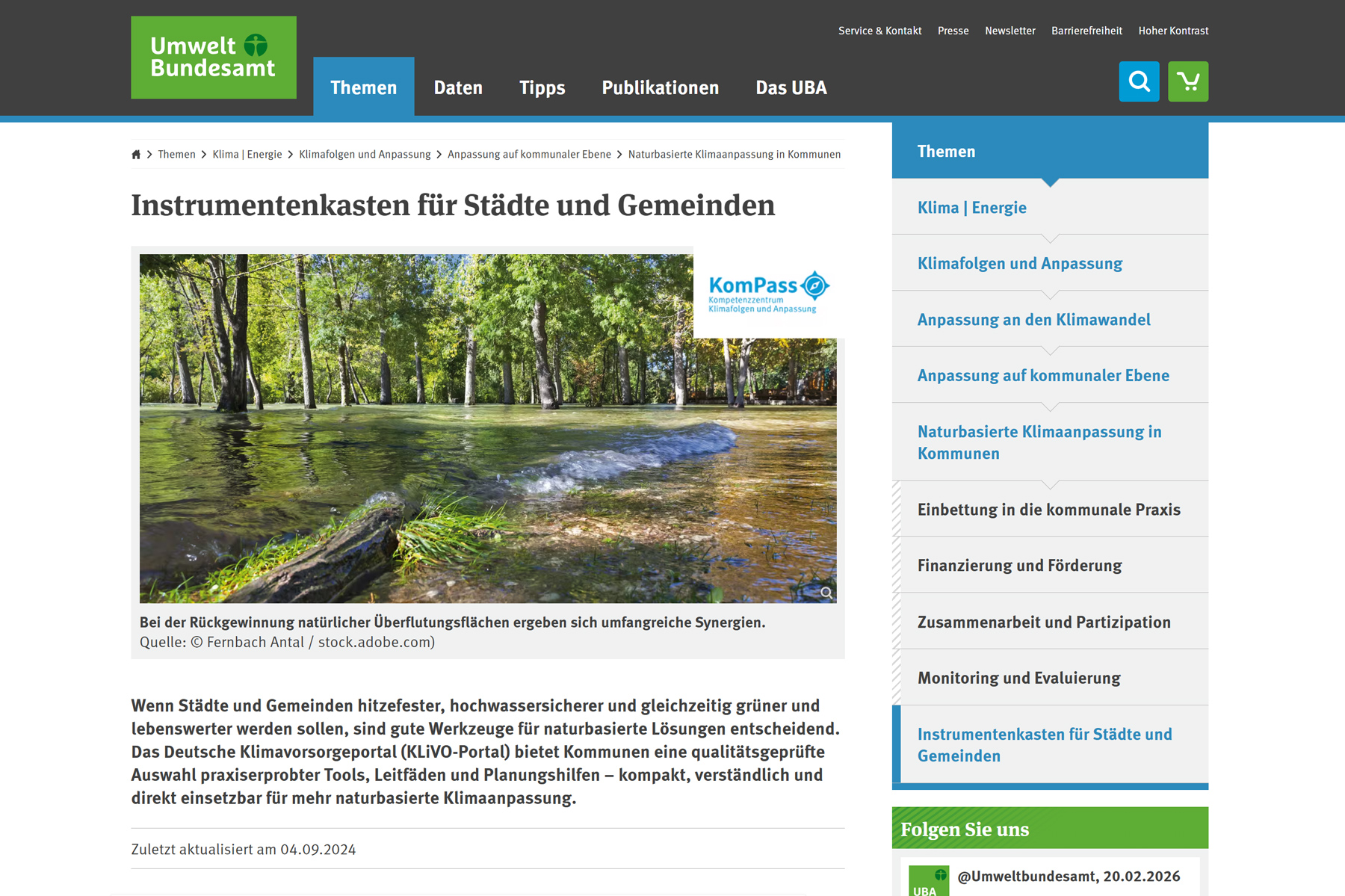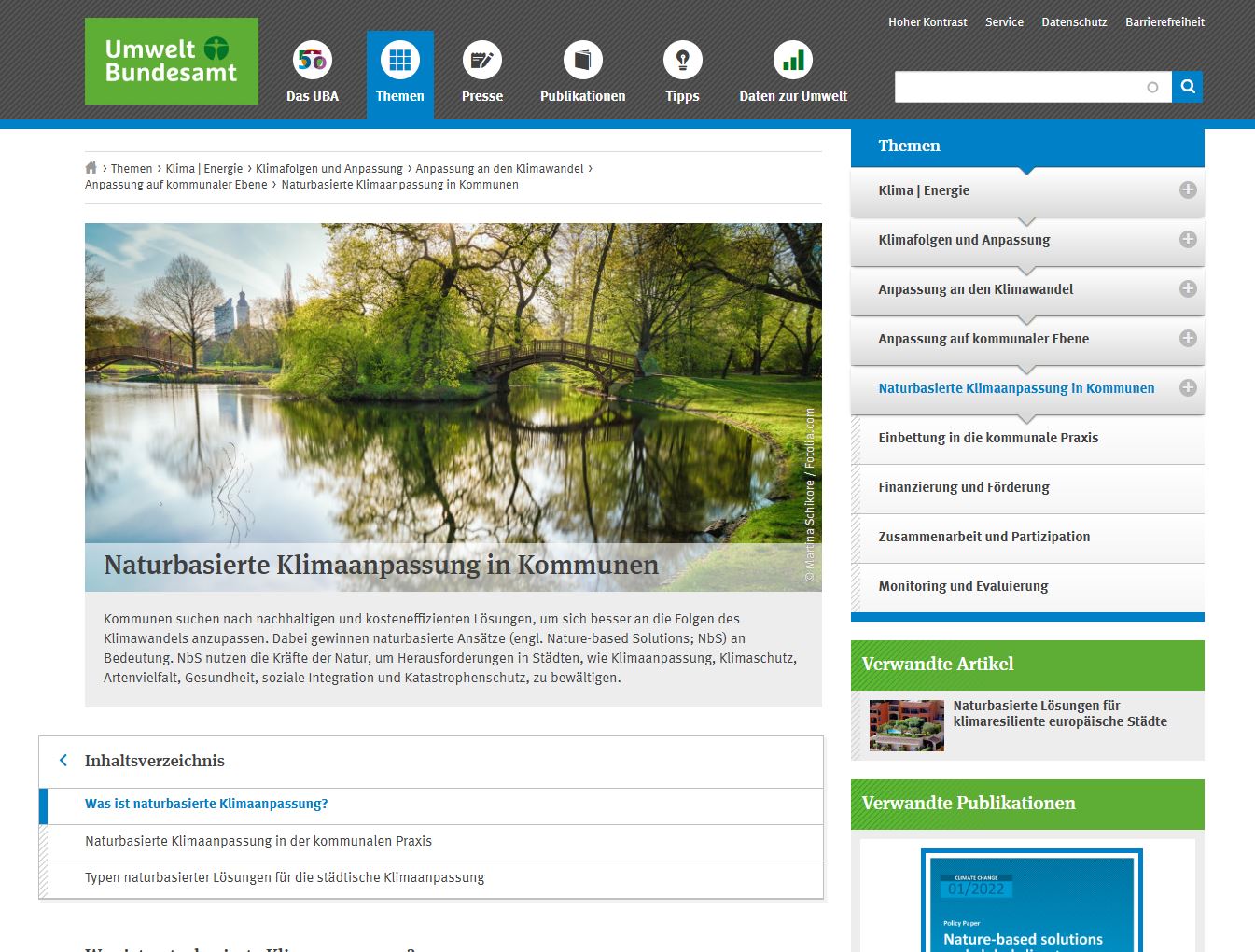Naturbasierte Lösungen für klimaresiliente Kommunen stärken
Herausforderungen und Lösungsansätze
- Publication
- Citation
Tröltzsch, J., Bueb, B., Davis, M., Dengler, F., Dicke, F., Knoblauch, D., Kupilas, B., Mederake, L., Naumann, S., Pumberger, M., Scholl, L., De la Vega, R., & Georgi, B. (2025). Naturbasierte Lösungen für die kommunale Klimaanpassung stärken: Herausforderungen und Lösungsansätze. Umweltbundesamt. https://doi.org/10.60810/openumwelt-7902
Cities and towns across Germany are increasingly facing the impacts of climate change – from heatwaves and floods to biodiversity loss.
A new report by Ecologic Institut and Birgit Georgi, commissioned by the German Federal Environment Agency (UBA), explores how nature-based solutions (NbS) can help municipalities strengthen their resilience while enhancing local ecosystems and quality of life.
The study, developed under the ReFoPlan project “Natürlich Klimaanpassung! Resiliente naturbasierte Lösungen für Kommunen”, provides an overview of the current state of NbS implementation for municipal climate adaptation in Germany. It identifies key barriers that hinder local action – such as limited financial and human resources, fragmented administrative structures, and conflicting land-use interests – while highlights strategies and tools to overcome them.
Drawing on a range of practical examples from across Germany, the report shows how municipalities are already implementing creative, locally adapted NbS to reduce climate risks. Authors emphasise that successful implementation requires a deep understanding of local needs and contexts, as there is no one-size-fits-all solution. Instead, a tailored mix of strategies ensures that ecological, social and economic benefits can be delivered simultaneously.
Key Messages
- Holistic benefits: NbS deliver multiple co-benefits for society and nature. Municipalities play a key role on public land and by motivating private landowners.
- Planning instruments: Awareness of legal and planning tools for multifunctional NbS remains limited; integrating these into local planning can help link adaptation with other municipal goals.
- Administrative barriers: Limited resources and siloed structures slow implementation. Cross-sectoral collaboration and informal networks can help drive progress.
- Supportive policy: The Climate Adaptation Act (KAnG) prioritizes NbS over “grey” measures. Spatial and land-use planning are key levers for municipalities.
- Private sector involvement: Incentives and partnerships can encourage NbS on private land – benefiting both companies and communities.
- Citizen participation: Early and transparent engagement fosters NbS acceptance and ownership but requires capacity and training to manage participation effectively.
- Financing options: Municipalities can tap diverse funding – from grants to crowdfunding – while strengthening knowledge of innovative financing models.
- Monitoring and evaluation: Systematic tracking of NbS outcomes helps assess their effectiveness and integrate lessons learned into future municipal strategies.
From Knowledge to Practice
The report serves as the foundation for additional project outputs, including:
- a toolbox for municipal NbS implementation,
- a guide to assess NbS costs and benefits, and
- communication materials to raise public awareness and inspire local action.
Together, these resources aim to empower local authorities to make cities and communities across Germany more resilient, sustainable, and nature-positive.







